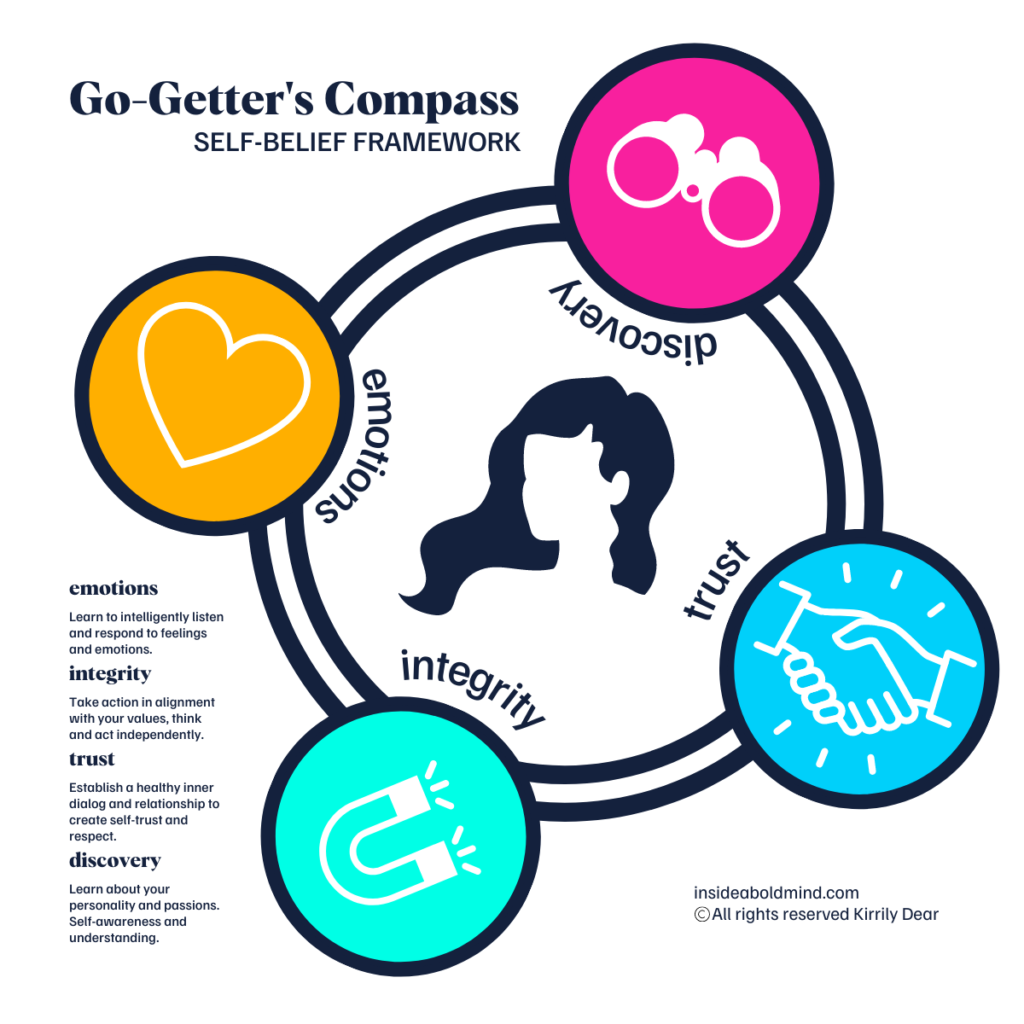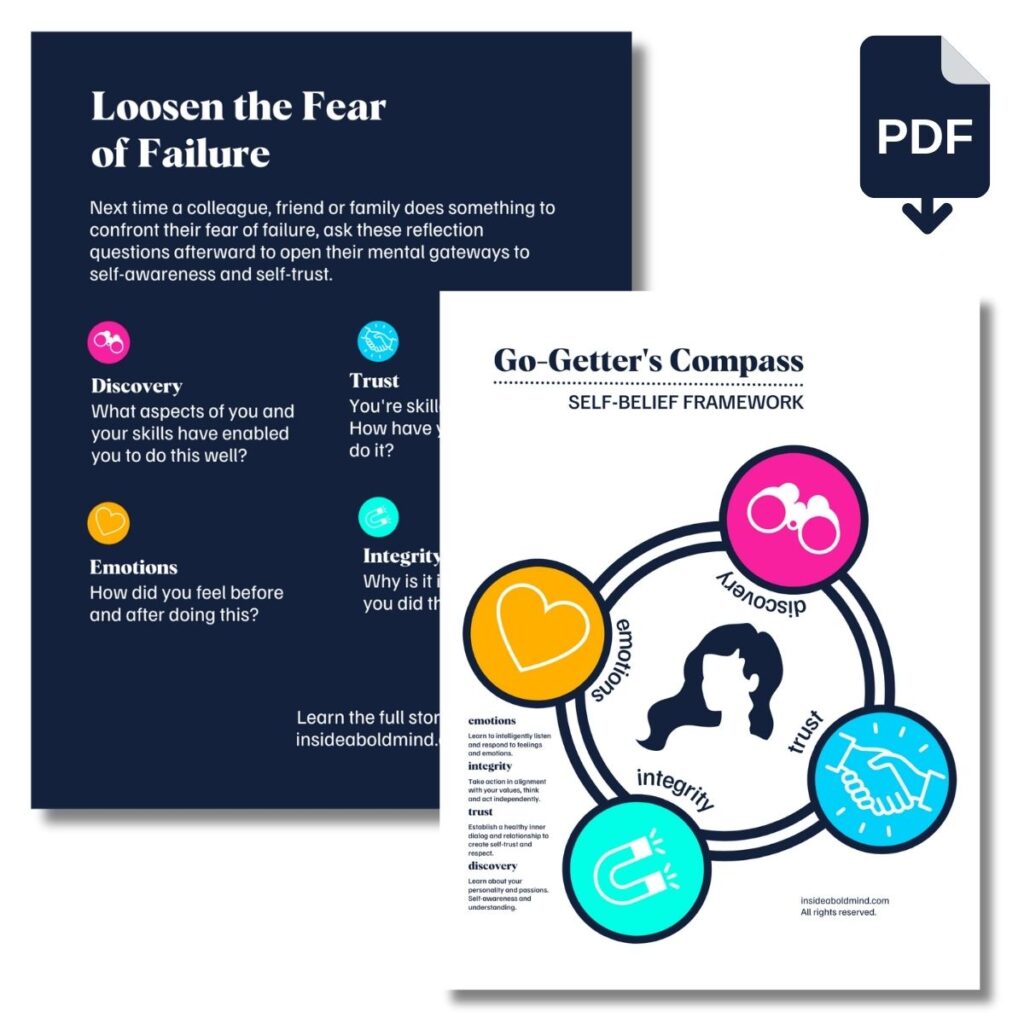Praise Alone Won’t Fix Their Fear of Failure
Praise is fantastic, but the benefits won’t last because while you’re praising, they’re feeling the horror of their fear.
Which Would You Choose? A Pit of Tarantulas or Risk Failure.
Imagine a rectangle pit dug six feet into the ground with hundreds of tarantulas pensively waiting in the bottom.
Standing at the top of the pit is a human, sane by any measure, contemplating a decision. They can either do a task where they risk failure or jump into the pit of tarantulas.
Which option would you choose?
It is hard to reconcile in my mind that more people would prefer to jump into the pit of tarantulas than risk failure, but that’s what research indicates. Spiders might be scary, but the thought of failure feels terminal for many people.

Research has shown that 46 per cent of women and 33 per cent of men worry about failing to the point that it stops them from performing tasks [1].
These results are supported by data collated by Statista [2]. They surveyed people with good business ideas about their subsequent course of action. In 39 countries surveyed, fear of failure stopped more than 40 per cent of respondents from pursuing their vision. In Saudi Arabia, that blew out to 63.3 per cent.
By contrast, only 3 to 15 per cent of people have an inhibiting fear of spiders.
Fear of Failure’s Deadly Grip
The technical term for fear of failure is atychiphobia, and like arachnophobia, people live with it to varying degrees.
The fear of failure expresses itself through a wide range of behaviours that include hesitation, procrastination, aggression and perfectionism. Worrying about failing not only stops us from being able to take advantage of opportunities but it also causes anxiety, depression, panic attacks and feelings of shame.
In a strangely ironic twist, worrying about failure is more harmful than failure itself. When we fail, it is often the learning opportunity or reality check we need. While it might feel uncomfortable initially, failing yields positive fruit eventually, but the fear of failure only has negative consequences.
So how did the fear of failure get and sustain its power over otherwise rational human beings?
Most people know the fear of failure in the conscious mind. For example, if, as a kid, an adult said you were hopeless at writing, you might hear that person’s voice and critical words in your head any time you attempt a writing task, which inhibits your ability to perform.
The fear of failure also operates in subconscious and non-conscious areas of the mind and eats away your confidence without you knowing.
Some cultures connect failure with feelings of shame, and it’s the deadly power of shame that fuels the fear of failure. For a person raised in that culture, simply thinking about trying something new or challenging can trigger feelings of shame which will block them from bringing their full capabilities to the task and add further momentum to the fear.
The spindly fangs of the fear of failure (its beliefs, feelings and behaviours) penetrate deep inside the victim’s mind and suck the life out of their dreams.
Ok, I’m being overly dramatic now, but for people living with the fear of failure, it’s not too far from their truth.
Praise Is Lovely, But They’d Still Choose Tarantulas
Praise offered meaningfully and respectfully creates an uptick in confidence, but it’s not the antidote for a person’s fear of failure.
Praise is a common technique used to encourage performance and is highly effective at helping a person feel seen and respected. However, it can have limited reach into the mind of a person who fears failure because of the counterattack of thoughts and feelings rising from the non-conscious mind.
Let’s say you have a colleague who refuses to chair meetings because she fears failure. When you invite her to do the task, she offers a long list of reasons she can’t.
I dislike being the centre of attention.
I don’t have the experience.
I stutter too much when I talk.
I will look foolish.
With gentle encouragement, she finally agrees to have a go and does well on her first attempt. Following the meeting, she will seek reassurance, and you offer praise like;
You did a great job of keeping everyone on track.
You handled that tricky question well.
Everyone enjoyed the meeting.
This praise is great; positive support and encouragement are always useful, and it also frames up an opportunity to give tips on what she might do differently next time, kicking off a healthy learning process.
However, during that whole experience, her fear of failure dial has remained firmly stuck on high because while you’re praising, she is feeling and thinking about her fear.
She thinks you’re just telling her those things to be nice.
There’s a knot of anxiety in her stomach, so she’s seeking reassurance.
She’s reflecting on the meeting and compiling a long list of all the things that weren’t perfect.
The praise has created an opportunity for the fear of failure to restate its position, and its powerful counterattack soon overwhelms your good vibes.
To end the domination of the fear of failure, we must use the Go-Getter’s Compass to explore deep into their bold mind and navigate a more effective response.
Loosen Fear’s Grip One Question At A Time
The Go-Getter’s Compass is a framework I created to navigate my own journey to self-belief. Each point of the Compass represents an essential facet of the journey.

Too often, people treat self-belief as a simple case of correcting the negative self-talk we hear in our minds. The examples above show that it’s far more complex, making exploration key to loosening fear’s grip.
Next time a colleague, friend or family does something to confront their fear of failure, such as chairing a meeting, ask the reflection questions below to open their mental gateways to self-awareness and self-trust.
I’ve created a flash card of the questions that you can download, print or share next time the opportunity arises for you to help someone conquer their fear of failure. (You can also use it to help yourself 😊)
Try trickling the questions over time rather than asking them all at once. Perhaps aim for one question every few days; the cumulative effect will be more potent than a once-off saturation of questions.
Discovery: What aspects of you and your skills have enabled you to do this well?
This question raises awareness of forgotten skills and positive personality traits. They will be more convinced when they discover these for themselves than when you point them out.
Trust: This is a great skill; how have you learned to do that?
This question will help them subconsciously acknowledge their ability to learn and apply learning to new situations, which is the foundation of self-trust.
Integrity: Why is it important that you did the task this way?
This question makes a connection between their values, priorities, and actions. They may answer, “No, it’s not important to me; I did it that way because I thought that’s what you wanted.” Thank them for their thoughtfulness and ask, “Is there a way you would have preferred to do it? Why do you prefer that?”.
The value of this question is in exploring answers and opening cognitive pathways for independent thinking; who knows, you might stumble on some fantastic opportunities for improvement.
Emotions: How did you feel before, during and after doing this? Did those feelings serve you well?
Some people are very guarded about their emotions, so let them ponder the answer without articulating. The key benefit is bringing awareness to emotions that may otherwise happen on autopilot. With attention comes the opportunity to analyse and reshape those emotions to be constructive and helpful.

References
[1] Sourced via Globalwire: Research Reveals Fear of Failure Has Us All Shaking in Our Boots This Halloween
[2] Source on Statista: Share of possible entrepreneurs deterred from starting a business due to fear of failure worldwide in 2022, by country



